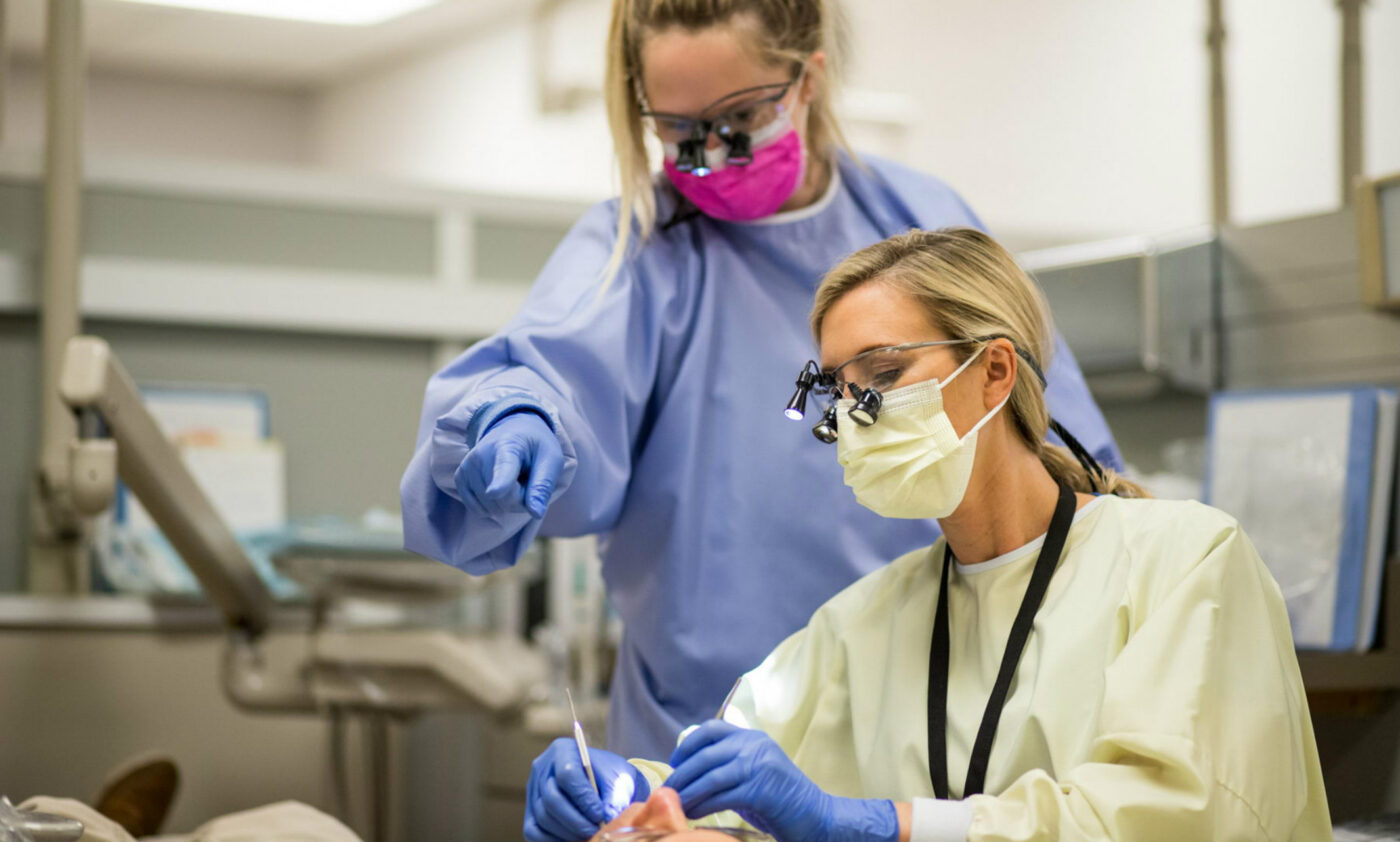Introduction
The Dental Admissions Test (DAT) is a crucial component for aspiring dentists in the United States. If you plan to apply to dental school, you’ll need to understand the DAT test, test dates, and how to prepare for it. This definitive guide will cover all aspects of the DAT, including how hard the test is, how long it lasts, and how to reschedule if needed. Additionally, we will provide information on pre-dental internships to help you succeed in your dental school journey.
The Dental Admissions Test (DAT) is a standardized exam administered by the American Dental Association (ADA) for students applying to dental schools in the United States. The test evaluates your academic aptitude, scientific knowledge, and perceptual abilities, which are essential for dental school success. Most dental schools require DAT scores as part of their admissions process, so it’s crucial to understand and prepare for the test.
DAT Test Dates 2023
The DAT is offered almost year-round. DAT test dates are available from January to December. You can schedule your test at your convenience. Still, planning and registering early is essential to ensure your preferred test date. For a complete list of DAT Test Dates 2023, visit the ADA website.
The DAT Test Dates 2023 are as follows:
- January 28-29
- February 11-12
- March 18-19
- April 22-23
- May 6-7
- June 17-18
- July 29-30
- August 19-20
- September 9-10
- October 21-22
- November 18-19
- December 2-3
To register for the DAT test, you must create an account on the ADA website and pay the registration fee for the DAT Test. Once registered, you can schedule your DAT test date and location.
The DAT Test is challenging, but it is possible to prepare for it and do well. Many resources are available to help you prepare, including books, online practice tests, and tutoring.
If you plan to take the DAT Test, it is important to start preparing early and give yourself enough time in learning the materials. You can achieve your goal in becoming a dentist with hard work and dedication.

How Long is the DAT?
Survey of the Natural Sciences (90 minutes): This section consists of 100 multiple-choice questions broken down into three subcategories:
- Biology (40 questions): This subsection covers a wide range of topics, including cellular and molecular biology, genetics, evolution, and ecology.
- General Chemistry (30 questions): This subsection tests your understanding of general chemistry concepts, such as atomic structure, periodic trends, chemical bonding, stoichiometry, and thermodynamics.
- Organic Chemistry (30 questions): This subsection evaluates your knowledge of organic chemistry principles, including nomenclature, reactions, mechanisms, and stereochemistry.
Perceptual Ability Test (PAT) (60 minutes): The PAT of the DAT test consists of 90 multiple-choice questions designed to assess your spatial visualization and reasoning abilities. The test includes six subtests:
- Keyholes: Visualize 3D objects from 2D images.
- Top-Front-End: Determine the appearance of a 3D object from various viewpoints.
- Angle Ranking: Compare angles and determine their relative sizes.
- Hole Punches: Visualize how a folded and hole-punched paper would appear when unfolded.
- Cube Counting: Count the number of visible and partially visible cubes in a given structure.
- Pattern Folding: Determine the appearance of a folded paper based on a flat pattern.
Reading Comprehension (60 minutes): This section contains three passages, each followed by 16-17 multiple-choice questions. The total number of questions in this section is 50. The Reading Comprehension section tests your ability to understand, analyze, and apply information from scientific and dental-related texts.
Quantitative Reasoning (45 minutes): The Quantitative Reasoning section consists of 40 multiple-choice questions that assess your problem-solving skills and mathematical abilities. Topics covered include algebra, numerical calculations, data analysis, geometry, and trigonometry.
You will also have a 15-minute break between the PAT and Reading Comprehension sections, allowing you to regroup and refocus before continuing the test.
How Hard is the DAT Test?
The DAT test is considered challenging due to its comprehensive coverage of various topics and the time constraints placed on test-takers. The test assesses your knowledge in biology, general and organic chemistry, perceptual ability, reading comprehension, and quantitative reasoning. As a result, it requires a solid understanding of these subjects and strong test-taking skills.
- Academic Demands: The DAT covers a wide range of topics in the natural sciences that are typically covered in undergraduate pre-dental coursework. A strong foundation in biology, general chemistry, and organic chemistry is essential for success on the DAT. You’ll need to recall, apply, and synthesize information from these subjects to answer the test questions accurately.
- Perceptual ability : The PAT section of the DAT is unique compared to other standardized tests, as it requires strong spatial visualization and reasoning skills. This section can be particularly challenging for some test-takers, as it is unlike any other test they have taken in the past. You’ll need to practice and develop your spatial skills to excel in the PAT.
- Time Management: The DAT’s time constraints can add to its difficulty. Test-takers must efficiently answer questions within the allotted time for each section, which can be challenging for those struggling with pacing. Practicing time management strategies during your test preparation is crucial to ensure you can complete all sections in the given time.
- Reading Comprehension: The Reading Comprehension section requires test-takers to not only understand complex scientific passages but also analyze and apply the information within them. This can be challenging, especially under time pressure. To succeed in this section, you’ll need to practice reading and interpreting scientific texts and answering questions related to them.
- Quantitative Reasoning: The Quantitative Reasoning section assesses your problem-solving skills and mathematical abilities. This section can be difficult for those who struggle with math or haven’t taken a math course in some time. To prepare for this section, you must review relevant mathematical concepts and practice solving problems under time constraints.
With proper preparation, you can overcome the challenges of the DAT. Reviewing the ADA’s DAT guide can help you understand the test’s content and structure. In addition, creating a study plan, using official practice materials, and developing test-taking strategies will greatly enhance your chances of success on the DAT.
DAT Score Range
Understanding the Scoring System: The DAT is scored based on the number of correct answers in each section. There is no penalty for incorrect answers, so it’s in your best interest to answer every question, even if you need clarification on the correct response. Each section’s raw score is then converted into a scaled score, which ranges from 1 to 30.
National Average Scores: Dental schools often consider the national average scores when evaluating applicants. According to the ADA, the national average scores for recent years are as follows:
- Survey of the Natural Sciences: 17.8
- Perceptual Ability Test (PAT): 18.6
- Reading Comprehension: 20.1
- Quantitative Reasoning: 18.1
Target Scores: While it’s important to aim for a score above the national average, you should also consider the specific requirements and expectations of the dental schools you’re applying to. Research the average DAT scores of accepted students at your target schools and set your goal accordingly. Aiming for a score in the 20 to 22 range is generally considered competitive for most dental schools.
Percentile Rankings: In addition to your scaled scores, your DAT score report will include percentile rankings for each section. These rankings indicate the percentage of test-takers who scored lower than you in a given section. For example, a percentile rank of 80 means that you scored above 80% of test-takers. Dental schools may use these percentile rankings to compare your performance with that of other applicants.
Retaking the DAT: If you’re not satisfied with your DAT scores, you can retake the test to increase your chances of dental school admission. However, you must wait at least 90 days between test attempts and can only take the test up to three times without special permission from the ADA.
For more information on scoring and how it’s calculated, visit the ADA website. Thorough preparation, using official practice materials, and understanding the scoring system will help you achieve a competitive DAT score and enhance your dental school application.
How to Register and Reschedule DAT
To register for the DAT, you must first obtain a DENTPIN (Dental Personal Identifier Number) from the ADA. Once you have your DENTPIN, you can apply for the DAT through the ADA’s online registration portal. Remember that there is a registration fee, which may vary depending on the year and any additional services you request.
If you need to reschedule your DAT test date, you can do so through your account on the ADA website. Keep in mind that rescheduling fees may apply, and you must reschedule at least 48 hours before your original test date to avoid forfeiting your registration fee.
Preparing for the DAT
Preparation is key to achieving a high score on the DAT. A well-structured study plan, combined with effective strategies and resources, can greatly enhance your chances of success. Here are tips to help you get ready for the test:
- Review the ADA’s DAT Guide: Familiarize yourself with the test content and format by reviewing the ADA’s DAT guide. This will help you understand what to expect on test day and allow you to focus your study efforts on the most relevant topics.
- Create a Study Schedule: Design a study schedule that allocates sufficient time for each section of the test. Break the material into manageable chunks and set specific goals for each study session. Make sure to include regular review sessions to reinforce your understanding and retention of the material.
- Use Official DAT Practice Tests and Study Materials: Utilize official practice tests and study materials to familiarize yourself with the test’s format and question types. Official resources are the most accurate representation of the test, so they are invaluable in gauging your readiness and identifying areas needing improvement.
- Supplement with External Resources: In addition to official materials, consider using other resources, such as textbooks, flashcards, and online forums, to reinforce your understanding of the material. These resources can provide additional perspectives and explanations that may help clarify complex concepts.
- Join Study Groups or Take a DAT Prep Course: Collaborate with peers by joining study groups or enrolling in a DAT prep course. These options can provide additional support, resources, and motivation throughout your preparation. Sharing knowledge and discussing concepts can deepen your understanding and expose you to different problem-solving approaches.
- Focus on Test-Taking Strategies: Develop and practice effective test-taking strategies, such as time management and eliminating incorrect answer choices. Learn to pace yourself during the test and allocate sufficient time for each question. Additionally, practice techniques for narrowing down answer choices and making educated guesses when unsure of the correct response.
- Monitor Your Progress: Periodically assess your progress by taking practice tests under timed conditions. Analyze your performance to identify strengths and weaknesses, and adjust your study plan accordingly. This will help you prioritize areas that need improvement and ensure that you’re making steady progress toward your goals.
- Take Care of Yourself: Don’t neglect your physical and mental well-being during your preparation period. Ensure you get enough sleep, eat a balanced diet, and exercise regularly. Managing stress and maintaining a healthy lifestyle will improve focus, memory retention, and overall test performance.
By following these tips and staying consistent in your preparation, you can boost your confidence and improve your chances of achieving a competitive score on the DAT.
Pre-Dental Internships Abroad
Pre-dental internships are crucial in shaping your future career by offering valuable hands-on experience, networking opportunities, and a deeper understanding of the dental profession. Internship participation can significantly strengthen your dental school application and help you stand out among other applicants. Here are some key benefits and ways to explore pre-dental internship opportunities:
- Gain Hands-on Experience: Pre-dental internships provide you with the opportunity to work alongside dental professionals, observe various dental procedures, and even assist in patient care. This hands-on experience allows you to apply the theoretical knowledge you’ve gained in the classroom to real-world situations, helping you develop practical skills vital for a successful career in dentistry.
- Enhance Your Dental School Application: Participating in an internship demonstrates your commitment to the dental profession and your eagerness to gain practical experience. This not only strengthens your dental school application but also showcases your ability to handle the challenges of dental school and a career in dentistry.
- Confirm Your Interest in Dentistry: Engaging in a pre-dental internship can help you gain a better understanding of the dental profession and confirm your interest in pursuing a career in this field. By working closely with dental professionals and experiencing the day-to-day activities of a dental practice, you can make a more informed decision about whether dentistry is the right career path for you.
- Networking Opportunities: Internships offer excellent networking opportunities, as they allow you to connect with dental professionals and other aspiring dentists. These connections can lead to valuable insights, mentorship, and future job opportunities. Building a strong professional network is essential for your long-term career success in the dental field.
- Develop Soft Skills: In addition to technical dental skills, pre-dental internships can help you develop essential soft skills, such as communication, teamwork, problem-solving, and time management. These skills are crucial for dental school and your future career, as they contribute to your ability to interact effectively with patients and other healthcare professionals.
- Explore Pre-Dental Internship Opportunities: To find pre-dental internship opportunities, visit our Pre-Dentistry/Dentistry Internship page. This resource can help you discover various internship options and guide you through the application process. Additionally, consider contacting your school’s career services office or local dental practices to inquire about available internships.
By participating in a pre-dental internship, you can gain invaluable experience, strengthen your dental school application, and make lasting connections in the dental community. This hands-on experience will not only enhance your understanding of the profession but also better prepare you for the challenges and rewards of a career in dentistry.
FAQ:
When should I take the DAT?
Ideally, you should take the DAT after completing most of the required science coursework for dental schools, such as biology, general chemistry, and organic chemistry. Many students take the test during their junior year of college, allowing enough time to retake it if needed. It’s also a good idea to schedule your test date to give yourself ample time for preparation and to align with dental school application deadlines.
How many times can I take the DAT?
You can take the DAT up to three times but must wait at least 90 days between test attempts. If you wish to take the test more than three times, you must obtain special permission from the ADA. Dental schools may consider your DAT score range DAT test dates when evaluating your application, so it’s important to adequately prepare for each attempt.
How do dental schools use DAT scores in their admissions process?
Dental schools use DAT scores as one of several factors in their admissions process. A competitive DAT score is essential but not the only factor considered. Schools also look at your academic performance, including your overall GPA and science GPA, letters of recommendation, personal statement, extracurricular activities, and any relevant dental experience, such as internships or shadowing opportunities.
Can I send my DAT scores to multiple dental schools?
When you register for the DAT, you can select up to five dental schools to receive your scores at no additional cost. If you wish to send your scores to additional schools, you can do so for an extra fee. After taking the DAT, you can also request additional score reports to be sent to dental schools through your DENTPIN account. It’s essential to ensure that your chosen dental schools receive your scores in time for their application deadlines.
How long are DAT scores valid?
DAT scores are generally considered valid for up to three years. However, some dental schools may have specific requirements regarding the age of acceptable DAT scores. It’s a good idea to check the admissions requirements for each dental school you’re interested in applying to for information on their policies.
What is a competitive DAT score for dental school admissions?
While a competitive DAT score may vary depending on the dental school, aiming for a score in the 20 to 22 range is generally considered competitive for most schools. However, it’s important to research the average DAT scores of accepted students at your target dental schools and set your goal accordingly. Keep in mind that a strong DAT score is just one aspect of your dental school application, and other factors, such as your GPA, letters of recommendation, and dental experience, also play a significant role in the admissions process.
What should I expect on test day?
On test day, arrive at the testing center early to allow time for check-in procedures. Bring a valid, government-issued photo ID with a signature, your DENTPIN, and the test admission ticket. Personal items, including electronic devices, bags, and study materials, are prohibited in the testing room. You will have a locker to store your belongings during the test. The testing center will provide a calculator and noteboard during the exam. Be prepared to follow all testing center rules and regulations to ensure a smooth testing experience.
What types of questions can I expect on the DAT?
The DAT consists of multiple-choice questions in four sections: Survey of the Natural Sciences, Perceptual Ability Test (PAT), Reading Comprehension, and Quantitative Reasoning. The questions cover various topics, including biology, general chemistry, organic chemistry, perceptual ability, reading comprehension, and math. The test aims to assess your knowledge in these subject areas and your ability to think critically and problem-solve.
Are there any accommodations available for test-takers with disabilities?
Yes, the ADA provides accommodations for test-takers with documented disabilities in accordance with the Americans with Disabilities Act. To request accommodations, you must submit an Accommodations Request Packet and supporting documentation to the ADA at least 60 days before your desired testing date. The ADA will review your request and determine if accommodations are warranted. For more information on requesting accommodations, visit the ADA website.
Can I reschedule or cancel my DAT appointment?
You can reschedule or cancel your DAT appointment. To reschedule, you must do so at least 24 hours before your scheduled appointment by logging into your DENTPIN account and selecting a new test date. Rescheduling fees may apply. To cancel your appointment, you must do so at least 48 hours before your scheduled appointment to receive a partial refund of your testing fees. Remember that rescheduling or canceling too close to your appointment may result in additional fees or forfeiture of your testing fees.
Are there any resources available to help me prepare for the DAT?
There are numerous resources available to help you prepare for the DAT, including the ADA’s DAT guide, official practice tests, study materials, and prep courses. In addition, you can join study groups, seek advice from peers or mentors who have taken the DAT, and utilize online forums and communities dedicated to DAT preparation. Be sure to choose resources that align with your learning style and personal study preferences to maximize your chances of success.
The Dental Admissions Test (DAT) is critical to your dental school application. Understanding the test’s structure, content, and scoring system is essential for success. By following the tips and resources provided in this guide, you can confidently prepare for the DAT and take the next step toward a rewarding career in dentistry.
And if you’re considering scheduling an appointment with IMA, don’t hesitate to book a consultation to discuss your dental school aspirations and how we can help you achieve them.





